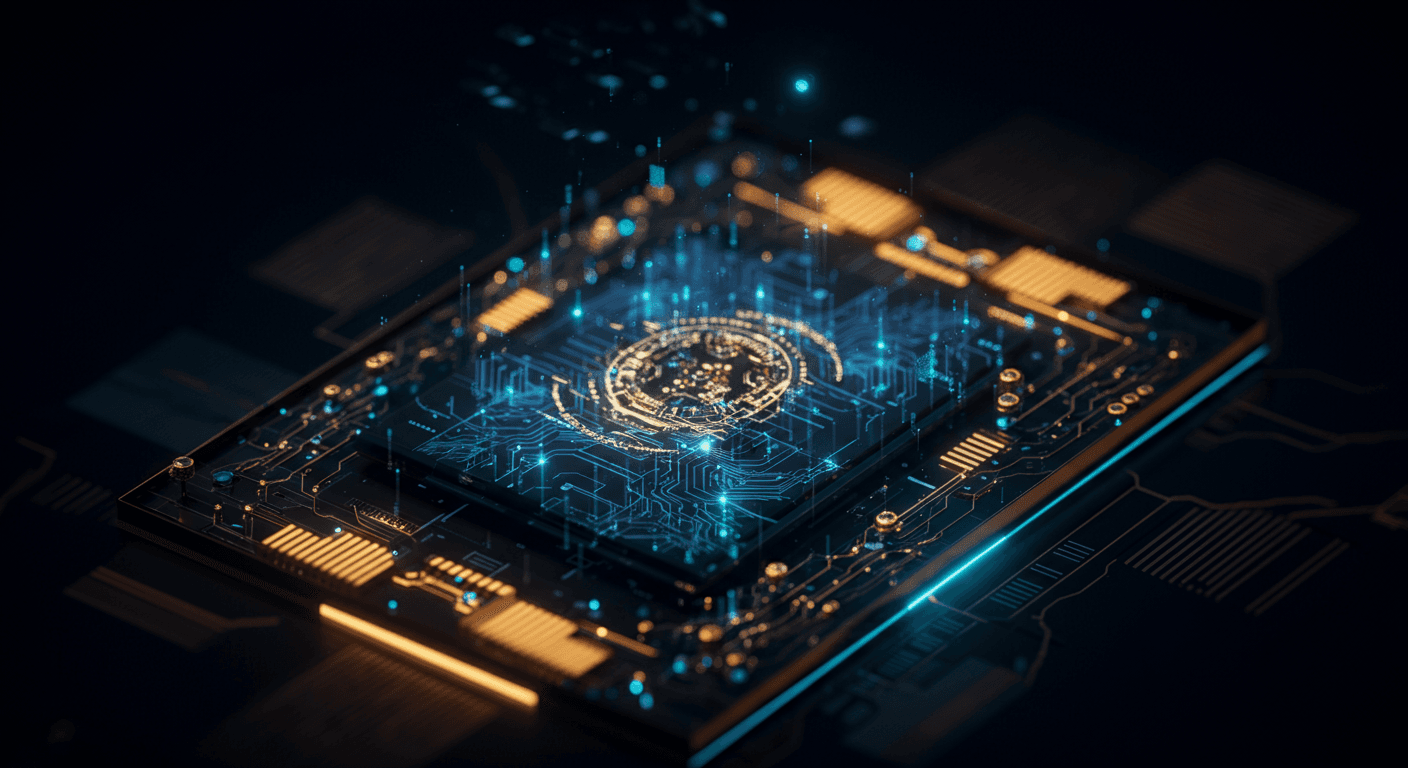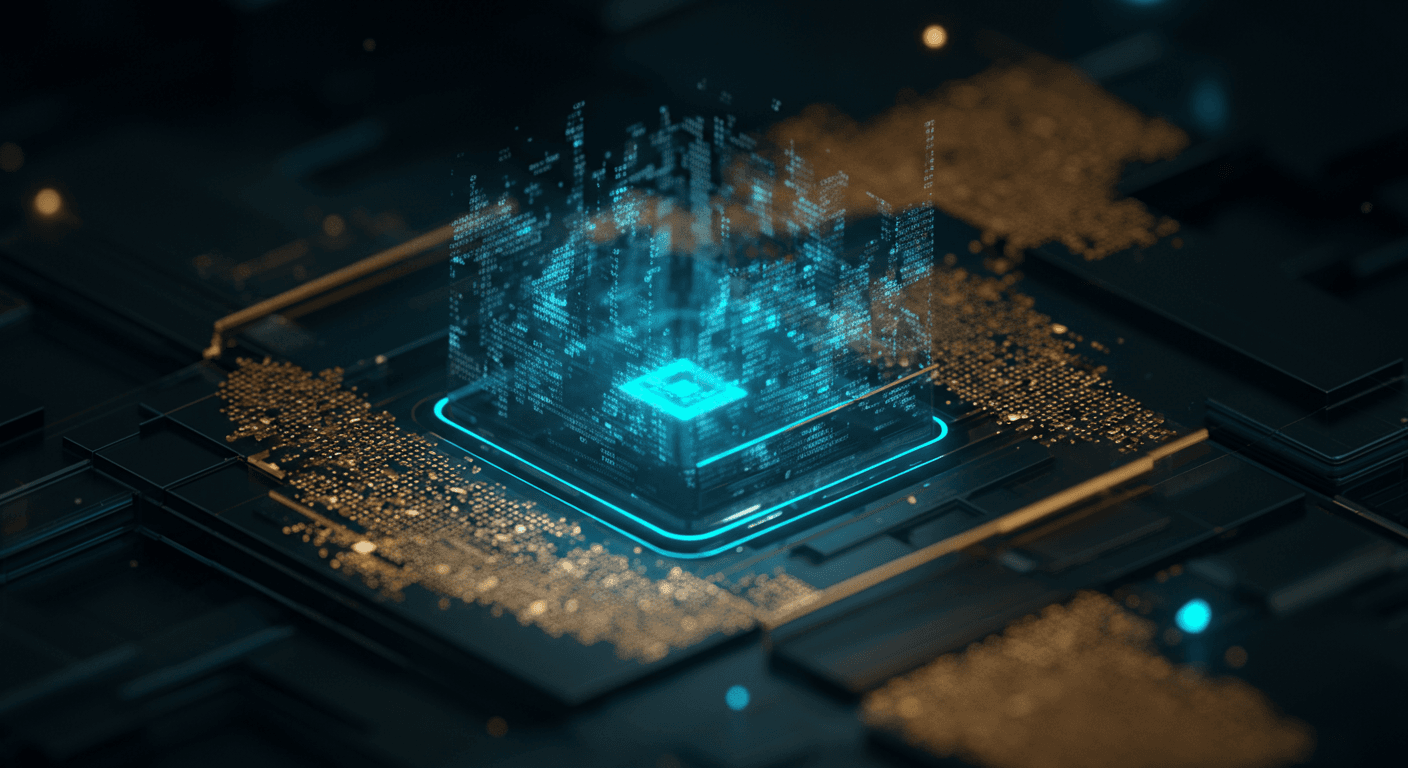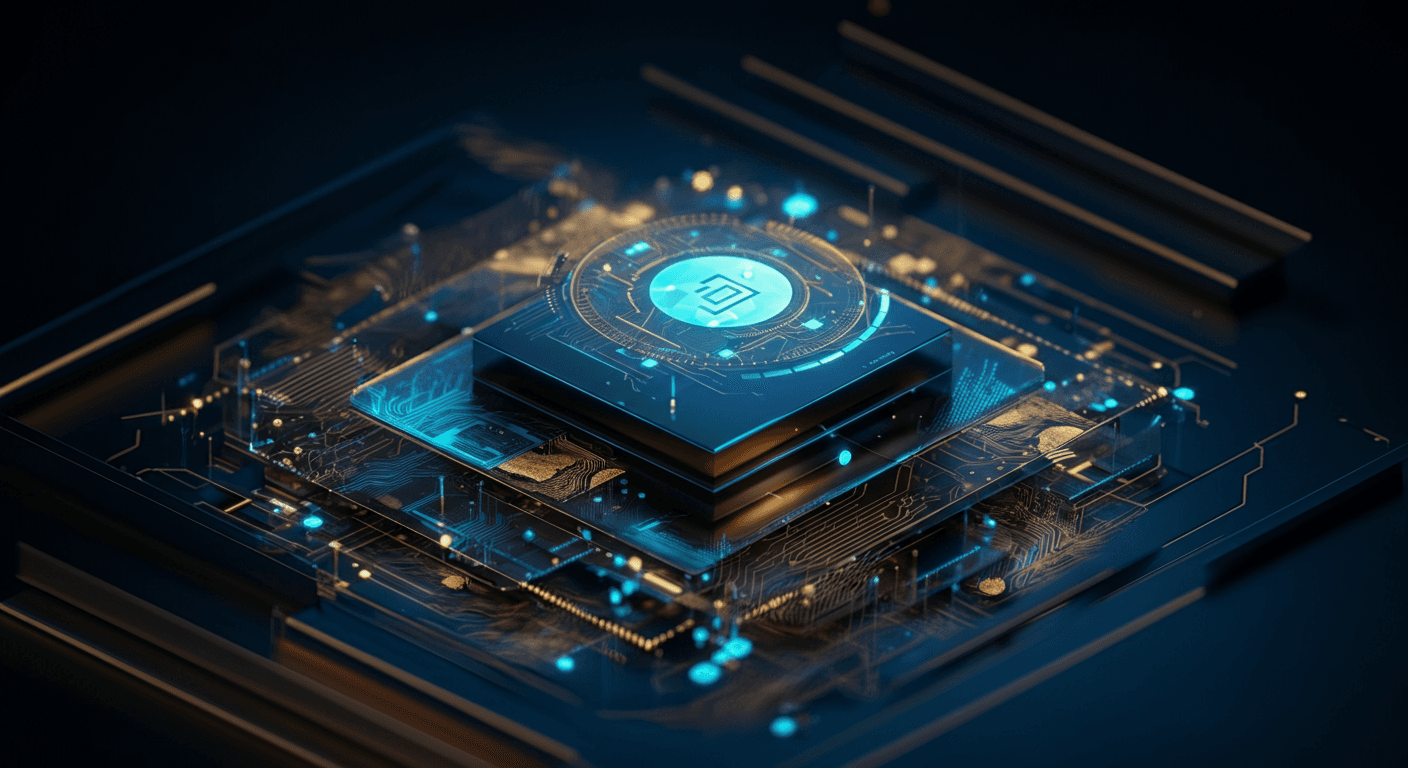OpenCUA: The Rise of Open Source AI Agents Challenging OpenAI and Anthropic

OpenCUA: The Open Source AI Agent Revolution
Forget walled gardens; the future of AI agents is open source, and OpenCUA is leading the charge. This marks a shift away from proprietary models like those offered by OpenAI (creators of ChatGPT) and Anthropic, known for large language models, and towards democratized AI.
What are Computer-Use Agents anyway?
Computer-Use Agents, or CUAs, are AI systems designed to automate tasks, interact with software, and generally act as intelligent assistants within digital environments. They have the potential to redefine how we interact with technology by automating complex workflows.
Why Open Source Agents Matter
Proprietary AI models come with significant limitations:
- Cost: Licensing fees can be prohibitive, especially for startups or individual developers.
- Control: Users are limited by the features and capabilities dictated by the provider.
- Transparency: The inner workings of these models are often opaque, hindering understanding and customization.
Democratizing AI
OpenCUA embodies the spirit of open source, empowering developers to:
- Build and deploy custom AI agents tailored to specific needs.
- Collaborate and share innovations with a wider community.
- Reduce reliance on expensive, proprietary solutions.
Here's the thing: OpenCUA isn't just another AI, it's a paradigm shift.
The Core Principles of OpenCUA: A Deep Dive
OpenCUA (Open Cognitive User Agents) flips the script on proprietary AI agents by embracing open-source principles. Its architecture isn't locked behind corporate firewalls; instead, it's a collaborative effort built on shared knowledge and community contribution.
Cognitive Architecture at its Core
Instead of relying on a single, monolithic model, OpenCUA uses a modular cognitive architecture. Think of it as a collection of specialized "brains" working together:- Perception Module: Processes sensory input (text, audio, video). Consider this the agent's "eyes and ears."
- Planning Module: Generates action plans based on goals. The agent figures out the best path to achieve its objectives.
- Execution Module: Carries out the plans, interacting with the environment. The agent takes action in the real world.
- Knowledge Base: Stores information and experiences. The agent learns and adapts over time.
Open vs. Closed: A Tale of Two Models
Proprietary AI agents often operate as black boxes; we feed them data and get results, but we don't truly know how they arrive at those conclusions. OpenCUA prioritizes transparency:
- Transparency: OpenCUA's code is readily available, allowing anyone to inspect, understand, and modify its inner workings.
- Customization: You can tailor OpenCUA to specific tasks or domains, adapting its behavior to suit your needs.
- Community Support: A global community of developers and researchers provides support, shares knowledge, and contributes to the project's evolution. Software Developer Tools find this approach advantageous as they can tailor agents to their specifications.
Ethical Implications and Security

The open nature of OpenCUA raises important ethical considerations. While transparency can promote accountability, it also opens the door for misuse. How do we ensure that these powerful tools are used responsibly? OpenCUA's open nature expands the attack surface and vectors as well. Community monitoring, secure coding, and governance are essential to mitigating these risks. Prompt Engineering Institute should be prioritized as a tool and resource in OpenCUA.
OpenCUA isn't just a technical feat; it's a social experiment, a test of our ability to collaborate and build AI for the benefit of all. It's a space for AI Enthusiasts to get involved. AI Enthusiasts will need to be cognizant of the ethical implications of open-source AI. Now, how do we make sure it doesn’t become Skynet's genesis?
OpenCUA is stepping into the AI ring, ready to rumble with the big boys of OpenAI and Anthropic.
OpenCUA vs. OpenAI and Anthropic: A Detailed Comparison

Let's break down how OpenCUA stacks up against the giants, OpenAI and Anthropic, in a feature-by-feature showdown. OpenCUA is an open-source initiative to create AI agents that can challenge proprietary offerings. OpenAI, most famous for ChatGPT, provides a variety of models and APIs. Anthropic, known for its Claude models, emphasizes safety and ethics.
- Performance:
- OpenCUA: Performance varies depending on the model and implementation, given its open-source nature. Early iterations are promising but may require fine-tuning.
- OpenAI & Anthropic: Generally high performance, with models like GPT-4 and Claude 3 Opus setting benchmarks.
- Scalability:
- OpenCUA: Scalability depends on the underlying infrastructure. Users can scale based on their resources.
- OpenAI & Anthropic: Managed scalability, ideal for businesses but can introduce vendor lock-in.
- Cost-Effectiveness:
- OpenCUA: Potentially cost-effective, especially for organizations with strong engineering teams, as it leverages open-source resources.
- OpenAI & Anthropic: Can be expensive at scale, especially for high-usage applications; costs are predictable but may impact budgets.
- Use Cases:
- OpenCUA: Excels in scenarios requiring high customization and control, such as research, niche applications, and privacy-sensitive projects.
- OpenAI & Anthropic: Ideal for broad applications such as content generation, customer service, and general-purpose AI tasks.
- Limitations: OpenCUA may lack the polish and extensive documentation of commercial offerings; development relies on community contributions.
| Feature | OpenCUA | OpenAI | Anthropic |
|---|---|---|---|
| Features | Highly Customizable, Open-Source | Broad API Access, Wide Range of Models | Focus on Safety and Ethical AI, Context Windows |
| Pricing | Resource Dependent | Tiered, Usage-Based | Tiered, Usage-Based |
| Accessibility | Requires Technical Expertise | User-Friendly APIs | User-Friendly APIs |
| Customization | High | Medium | Medium |
| Rate Limits | Dependent on Implementation | Defined per Tier | Defined per Tier |
OpenCUA offers a compelling alternative for those seeking ultimate control and customizability, though it requires a more hands-on approach. For turn-key solutions and cutting edge performance, OpenAI and Anthropic remain strong contenders. Keep an eye on the open-source arena - it's only a matter of time before it truly disrupts the market. For a deeper dive, check out our AI News section for daily insights.
The age of personalized AI isn't coming; it's here, and OpenCUA is opening the doors.
Revolutionizing Industries with OpenCUA
OpenCUA isn't just about open source; it's about adaptable intelligence, and its potential use cases are as vast as your imagination. Think bespoke AI, not a one-size-fits-all solution.- Automation: Imagine automating complex workflows in manufacturing or logistics. OpenCUA lets you create specialized agents that learn and adapt to unique operational needs, far beyond what generic systems can achieve.
- Data Analysis: Financial institutions can use OpenCUA for fraud detection, identifying patterns and anomalies with incredible speed and accuracy. It's like having a detective who never sleeps.
Building Your AI Dream Team
OpenCUA empowers businesses to build custom AI agents that align perfectly with their specific operational and strategic goals.Building a custom AI agent with OpenCUA is like tailoring a suit; it fits perfectly.
This contrasts sharply with relying solely on pre-packaged AI solutions, offering a strategic advantage in rapidly evolving markets.
Fueling AI Research and Development
The open-source nature of OpenCUA accelerates innovation in AI research, and facilitates collaboration and rapid iteration, leading to breakthroughs in AI capabilities.Seamless Integration
One of OpenCUA's biggest strengths is its ability to play well with others – think open-source tools, data platforms, and existing business systems. This seamless integration reduces development time and maximizes impact. Need inspiration? Check out a prompt library for ideas.In short, OpenCUA is democratizing AI. Forget walled gardens; the future is open, adaptable, and uniquely yours.
Alright, let's dive into OpenCUA and get our hands dirty—figuratively, of course; it's all cloud-based, after all.
Getting Started with OpenCUA: A Practical Guide
Want to experiment with AI agents without breaking the bank? OpenCUA offers an open-source alternative to proprietary systems, letting you build and customize agents to your exact specifications. Think of it as the Linux of AI agents: flexible, powerful, and community-driven.
Setting Up Your Environment
First things first, you'll need a suitable machine. Minimum hardware requirements include:
- A modern CPU with at least 4 cores
- 16GB of RAM (32GB recommended for complex tasks)
- An NVIDIA GPU with at least 8GB of VRAM (optional, but highly recommended for performance)
- Ubuntu 22.04 or a similar Linux distribution is ideal, though macOS and Windows are also supported (with some extra configuration).
pip:bash
pip install opencua opencv-python transformers torch
Creating Your First Agent
Let's create a simple agent that can respond to basic questions. This involves defining the agent's behavior and providing it with initial knowledge. Here’s a snippet to get you started:
python
from opencua import Agentagent = Agent(name="MyFirstAgent", description="A basic question-answering agent.")
Provide initial knowledge
agent.learn("The capital of France is Paris.")
agent.learn("The sun is a star.")Define a response function
def respond_to_query(query):
if "capital" in query:
return "The capital is Paris."
elif "sun" in query:
return "The sun is a star."
else:
return "I don't have information on that topic."agent.set_response_function(respond_to_query)
Test the agent
print(agent.respond("What is the capital of France?")) # Output: The capital is Paris.
Contributing and Troubleshooting
"The journey of a thousand miles begins with a single step – or, in this case, a
git clone."
Don't be shy! Contributing to the OpenCUA project is a great way to learn and improve the tool. Common issues include dependency conflicts and GPU setup problems. The OpenCUA community forums are a great place to find solutions and support. Also, consider checking out AI-specific Software Developer Tools to assist in this journey.
Ready to ditch the walled gardens of proprietary AI? OpenCUA offers a transparent, customizable, and community-driven platform to explore the exciting world of AI agents. Now, go forth and create!
The relentless march of AI continues, but the real revolution might be unfolding not in Silicon Valley boardrooms, but within open-source communities.
OpenCUA: Democratizing AI Agents
OpenCUA represents a pivotal shift. It stands for Open Collaborative User Agent, aiming to foster a collaborative environment for developing AI agents. Unlike proprietary AI, OpenCUA promotes shared knowledge and accelerates innovation.Vision and Impact
OpenCUA envisions a future where anyone can contribute to and benefit from AI agent technology. Its impact extends beyond code:Ethical Considerations: OpenCUA aims to bake ethical considerations into the design* of AI agents.
- Societal Benefit: Its open nature ensures broader accessibility and prevents AI power from being concentrated in the hands of a few.
- AGI Development: By promoting collaboration, OpenCUA could dramatically speed up progress towards artificial general intelligence.
Future Trends and Collaboration
"The most profound technologies are those that disappear. They weave themselves into the fabric of everyday life until they are indistinguishable from it." - Mark Weiser (slightly adapted)
Open source is more than just a development model – it’s a philosophy. Opportunities for collaboration are immense:
- Diverse Perspectives: OpenCUA invites contributors from various backgrounds, enriching the AI landscape.
- Faster Innovation: Open collaboration accelerates development cycles and drives rapid improvement.
- Accessibility: Open-source tools like OpenCUA ensures even small teams can build sophisticated AI agents.
OpenCUA is more than just code; it's a thriving community dedicated to advancing open-source AI agent technology.
Connecting with the Community
Ready to dive into the world of OpenCUA? There are several ways to get involved:- GitHub Repository: Find the source code, contribute, and track progress on the OpenCUA GitHub repository. Think of it like the central nervous system for OpenCUA's evolution.
- Documentation: Need to understand how OpenCUA works? The documentation provides everything you need to get started, similar to an instruction manual that comes with new Software Developer Tools.
- Community Forums: Engage in discussions, ask questions, and connect with other developers on the community forums.
Contributing Your Skills
Developers of all skill levels are welcome to contribute:- Code Contributions: Help improve the core functionalities and address existing issues. Look for opportunities on the GitHub repository!
- Documentation Enhancement: Clear and concise documentation is vital. Contribute by improving existing guides or creating new ones.
- Testing & Feedback: Thorough testing ensures stability. Report bugs, suggest improvements, and help refine the agent's capabilities.
Stay Updated
Keep your finger on the pulse of OpenCUA:- Events & Workshops: Stay tuned for upcoming events, workshops, and conferences showcasing OpenCUA's capabilities. It's like attending a tech convention but focused entirely on AI agents!
- Success Stories: Read testimonials and learn how other developers are leveraging OpenCUA to build innovative Conversational AI solutions.
Keywords
OpenCUA, open source computer-use agents, AI agents, autonomous agents, OpenAI alternatives, Anthropic alternatives, open source AI, AI automation, cognitive architecture, artificial general intelligence, AI agent comparison, computer-use agents, enterprise AI solutions, building AI agents
Hashtags
#OpenCUA #AIagents #OpenSourceAI #AutonomousAgents #FutureOfAI
Recommended AI tools
ChatGPT
Conversational AI
AI research, productivity, and conversation—smarter thinking, deeper insights.
Sora
Video Generation
Create stunning, realistic videos & audio from text, images, or video—remix and collaborate with Sora 2, OpenAI’s advanced generative app.
Google Gemini
Conversational AI
Your everyday Google AI assistant for creativity, research, and productivity
Perplexity
Search & Discovery
Clear answers from reliable sources, powered by AI.
Cursor
Code Assistance
The AI code editor that understands your entire codebase
DeepSeek
Conversational AI
Efficient open-weight AI models for advanced reasoning and research
About the Author

Written by
Dr. William Bobos
Dr. William Bobos (known as 'Dr. Bob') is a long-time AI expert focused on practical evaluations of AI tools and frameworks. He frequently tests new releases, reads academic papers, and tracks industry news to translate breakthroughs into real-world use. At Best AI Tools, he curates clear, actionable insights for builders, researchers, and decision-makers.
More from Dr.Was this article helpful?
Found outdated info or have suggestions? Let us know!


